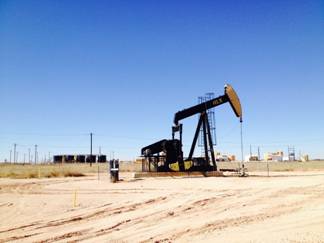Fracking may Worsen Asthma for Nearby Residents, Study Says
A study published in JAMA Internal Medicine shows that fracking may worsen the condition of asthma in residents living near oil and gas drilling sites. Asthma treatments were nearly four times more common in patients living near sites with more or larger active wells.
Fracking is actually hydraulic fracturing, “a technique for extracting oil and gas by injecting water, sand and chemicals into wells at high pressure to crack rock.” This leads to environmental effects, such as, “exhaust, dust and noise from heavy truck traffic transporting water and other materials, and from drilling rigs and compressors.” Multiple U.S. states have benefited from the high amounts of oil and gas produced this process.
 The study’s lead author and researcher at John Hopkins University’s Bloomberg School of Public Health, Sara Rasmussen, claims that the results stem from the, “said pollution and stress from the noise caused by fracking.”
The study’s lead author and researcher at John Hopkins University’s Bloomberg School of Public Health, Sara Rasmussen, claims that the results stem from the, “said pollution and stress from the noise caused by fracking.”
Over 25 million individuals in the U.S. have asthma, which causes symptoms including, “wheezing, breathing difficulties and chest tightness.” Symptoms may flare up if an individual is exposed to air pollution, dust, and/or stress. Research has shown increased air pollution in areas with high levels of oil and gas drilling.
Over 6,200 fracking wells were drilled in Pennsylvania from 2005 to 2012. Researchers retrieved nearly 36,000 asthma patients’ electronic health records (EHRs) throughout that time. The EHRs were accessed from the Geisinger Health System that incorporates over 40 counties in the state of Pennsylvania. “Evidence of asthma attacks included new prescriptions for steroid medicines, emergency-room treatment for asthma and asthma hospitalizations.”
Throughout the study, over 20,000 oral steroid prescriptions were ordered, nearly “5,000 asthma hospitalizations and almost 2,000 ER asthma visits.” The results revealed that these outcomes were, “50 percent to four times more common,” in patients with asthma that lived closer to an area with an increased rate or larger wells.
Those living approximately 12 miles from the wells experienced the highest risk for asthma attacks, while those living 40 miles away experienced the lowest risk.
"Asthma is a huge problem," Dr. Norman H. Edelman, senior scientific adviser for the American Lung Association, said. "Anything we can do to elucidate the causes will be very useful."

